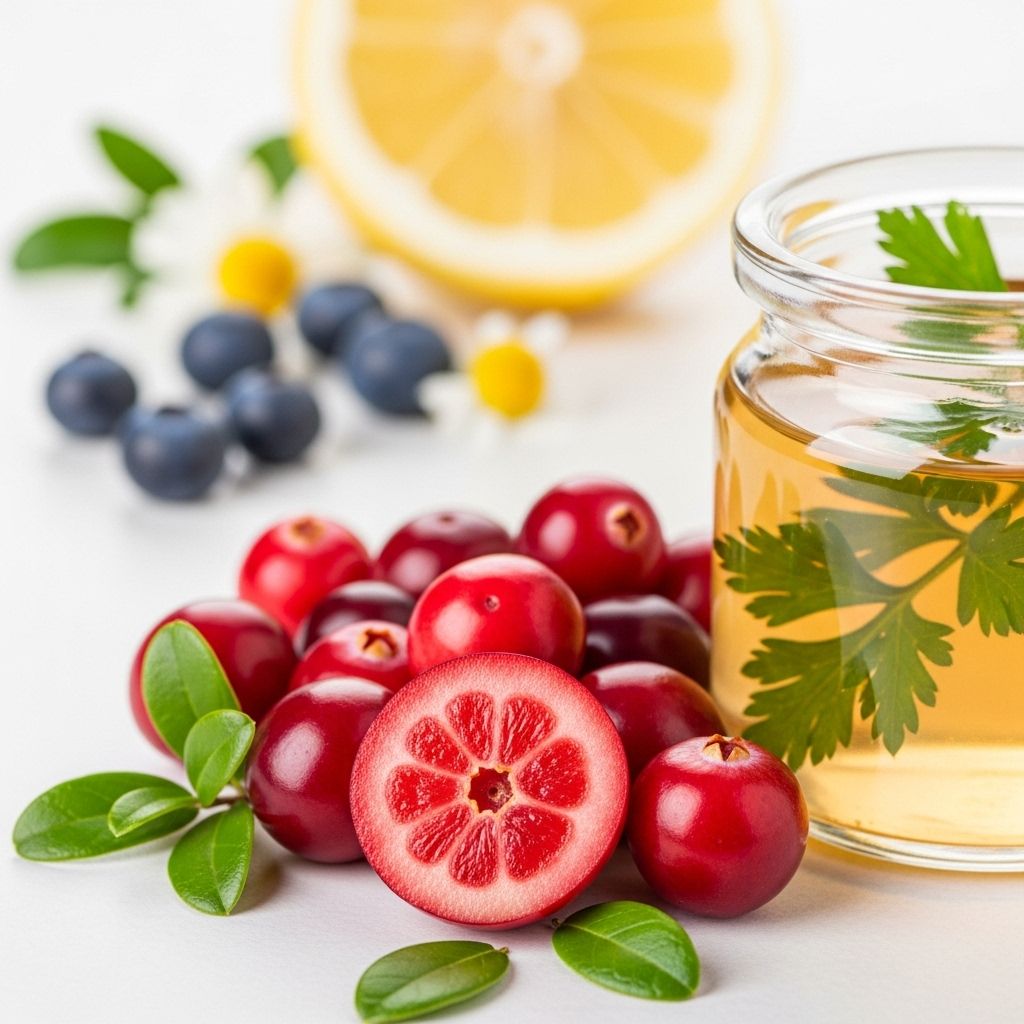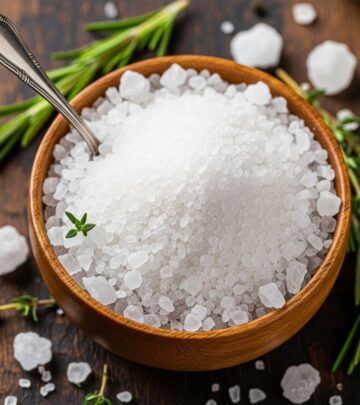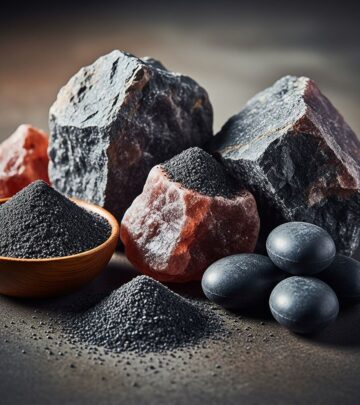Natural Urine Infection Remedies: Evidence-Based Home Treatments and Prevention Strategies for UTI Relief
Explore proven, natural home remedies and prevention tips for urinary tract infections, including lifestyle strategies and scientific insights.

Natural Urine Infection Remedies: A Comprehensive Guide to UTI Relief and Prevention
Urinary tract infections (UTIs) are among the most common bacterial infections globally, affecting millions of adults and children each year. They’re uncomfortable, disruptive, and sometimes recur despite medical treatment. While antibiotics remain the primary therapy for most UTIs, many individuals seek complementary and alternative strategies, including natural remedies, lifestyle changes, and dietary modifications to reduce symptoms, support recovery, and prevent future infections. This guide brings together evidence-based info on natural urine infection remedies, describes the science behind each approach, and answers common questions about efficacy and safety.
Table of Contents
- Understanding Urinary Tract Infections
- Signs and Symptoms of Urine Infections
- Why Consider Natural Remedies?
- Top Evidence-Based Natural Remedies
- Herbal Teas & Supplements for Urine Infections
- Lifestyle Changes for Prevention
- When to Seek Medical Attention
- Frequently Asked Questions (FAQs)
Understanding Urinary Tract Infections
The urinary tract includes the kidneys, ureters, bladder, and urethra. Most urinary infections are caused by Escherichia coli (E. coli), a type of bacteria normally found in the gut. Bacteria entering the urinary tract can multiply, leading to symptoms such as burning urination, urgency, and discomfort. Cystitis (bladder infection) is the most common type, but infections can also affect the kidneys (pyelonephritis) or urethra (urethritis).
Common risk factors include:
- Female anatomy (shorter urethra facilitates easier bacterial entry)
- Sexual activity
- Urinary retention or incomplete emptying
- History of previous UTIs
- Diabetes or immune suppression
Signs and Symptoms of Urine Infections
Early recognition of UTI symptoms can guide appropriate home care or medical intervention:
- Burning sensation when urinating
- Frequent and urgent need to urinate
- Passing small amounts of urine
- Cloudy, dark, or foul-smelling urine
- Pelvic or lower abdominal pain
- Low-grade fever (sometimes)
- In children: bedwetting, fever, irritability
If you experience back pain, high fever, nausea, or vomiting, seek medical care immediately, as these can indicate a kidney infection.
Why Consider Natural Remedies?
While antibiotics are essential for treating active infections, repeated UTI use can lead to resistance, microbiome imbalance, and other side effects. Natural remedies and lifestyle practices can:
- Alleviate mild UTI symptoms
- Support recovery and healing
- Reduce risk of recurrence
- Complement prescribed treatments
It’s important to understand that in cases of severe, persistent, or complicated infection, antibiotics may be necessary. Discuss alternative remedies with your healthcare provider, especially if you are pregnant, immunocompromised, or have recurrent UTIs.
Top Evidence-Based Natural Remedies for UTIs
Extensive research and clinical experience have identified a range of natural remedies that may help manage or prevent mild urinary infections. Here we summarize the most commonly used and scientifically supported approaches.
1. Increased Fluid Intake
Drinking plenty of water is a simple and effective way to flush bacteria from the urinary tract. Frequent urination helps dilute toxins, minimize irritating mineral concentration, and expel infectious agents before they can cause symptoms.
Most sources recommend at least 8-10 glasses of water per day.
2. Unsweetened Cranberry Juice & Supplements
Cranberry contains proanthocyanidins that prevent bacteria (especially E. coli) from sticking to urinary tract linings. Multiple studies show a significant reduction in UTI recurrence (up to 52%) with regular consumption of cranberry juice, tablets, or powder supplements. Choose unsweetened products to avoid excess sugar, which may worsen the infection.
| Cranberry Form | UTI Prevention Effectiveness | Best Use |
|---|---|---|
| Unsweetened Juice | 54% Reduction in Recurrence | Women, children, recurrent UTIs |
| Tablets/Capsules | Up to 52% Lower Risk | Women with recurrent UTIs |
| Whole Fruit Powder | Comparable efficacy to juice | Preferred for individuals who avoid juices |
3. Probiotics (Lactobacillus)
Probiotics are beneficial bacteria found in foods such as yogurt, kefir, and fermented vegetables. They help restore healthy urinary and vaginal flora, making it harder for harmful bacteria to take hold. Clinical studies confirm a reduction in UTI recurrence, especially in women and children.
4. D-Mannose
D-mannose is a natural sugar that binds to bacteria, preventing them from adhering to the urinary tract. It is available as a supplement in powder or capsule form and may help both treat and prevent UTIs. D-mannose is well-tolerated, but consult your provider before starting.
5. Garlic
Garlic contains allicin—an antimicrobial agent that can inhibit bacterial growth in the urinary tract. Daily consumption of fresh garlic or supplements may help reduce infection risk. Garlic is widely used in combination with cranberry and other remedies.
6. Baking Soda
Baking soda (sodium bicarbonate), taken in moderation, may neutralize urinary acidity, reducing discomfort. A teaspoon dissolved in a glass of water is a common traditional approach, but use caution—excess can disturb your body’s natural pH. Not recommended for long-term use or those with hypertension.
7. Warm Compress
Applying a warm compress to the lower abdomen can relieve cramps, bladder pain, and pelvic pressure associated with UTIs. Thermal therapy increases blood flow, reduces inflammation, and eases muscle tension.
Herbal Teas & Supplements for Urine Infections
Several herbal teas and supplements are popular among natural health practitioners and traditional medicine. Science is still evolving, but here’s what is known about the most promising herbs for urinary health.
1. Parsley Tea
Parsley acts as a mild diuretic, helping to flush out bacteria by increasing urine production. Some small studies found that parsley tea, garlic, and cranberry extract together can prevent recurrent UTIs, though larger trials are needed.
2. Chamomile Tea
Chamomile possesses anti-inflammatory and antibacterial properties. This herbal tea may help reduce tissue inflammation and relieve UTI symptoms due to its soothing effects.
3. Mint Tea
Mint leaves, such as peppermint, show antibacterial activity against E. coli in laboratory tests. Mint tea is sometimes used for relief, though no human studies confirm its use for acute infection thus far.
4. Uva Ursi (Bearberry)
This traditional herb has mild antibacterial effects and is sometimes used in supplements for preventive purposes. Current research remains inconclusive; use caution and consult your doctor.
5. Other Herbal Remedies
- Horseradish and Nasturtium: Combined, these herbs are being studied for UTI prevention.
- Apple Cider Vinegar: Tradition suggests that its acidity may deter bacterial growth, but clinical evidence is limited.
- Rice Vinegar: May decrease urinary bacteria, but not yet clinically validated.
Lifestyle Changes and Holistic Prevention for Urinary Health
Preventative strategies focus on hygiene, diet, and behavior, reducing recurrence risk and supporting the body’s natural defenses.
1. Timely Urination
Avoid ‘holding it’—urinate promptly when the urge arises to keep the bladder clear of bacteria.
2. Hygiene Practices
- Wipe front to back after using the toilet
- Avoid perfumed feminine hygiene products and tight synthetic underwear
- Change out of wet clothes quickly after exercise or swimming
3. Dietary Adjustments
- Reduce sugar intake—sugar feeds bacteria and may worsen UTI recurrence
- Eat more fiber—supports healthy digestion and flora
- Include fermented foods and garlic in regular meals for natural antimicrobial support
4. Sexual Health Considerations
- Urinate before and after intercourse to flush out possible bacteria
- Maintain open dialogue with healthcare providers about UTI prevention, especially if frequently recurrent
5. Clothing Choices
- Wear breathable, cotton underwear
- Avoid tight pants and non-absorbent fabrics
When to Seek Medical Attention
Natural remedies are best for mild UTI symptoms or prevention. Seek medical care promptly if you experience:
- High fever
- Severe pain in back, sides, or abdomen
- Nausea, vomiting, or dehydration
- Blood in urine
- Symptoms persisting more than 48 hours
Delay in treatment increases risk of kidney infection and other complications. Never use natural remedies as a substitute for prescribed antibiotics in severe cases.
Frequently Asked Questions (FAQs)
Q: Can natural remedies cure a UTI without antibiotics?
The majority of evidence suggests antibiotics are necessary for clearing most UTIs, especially in severe or persistent cases. Natural remedies can help prevent recurrence and relieve mild symptoms but should not replace medical therapy for active infections.
Q: Is cranberry juice effective for treating or preventing UTIs?
Cranberry juice and supplements demonstrate clear benefits for preventing recurrence, but their ability to treat active infections is limited. For best results, use unsweetened cranberry products as part of a prevention strategy.
Q: Is it safe to take D-mannose or garlic supplements regularly?
Clinical studies support the regular use of D-mannose and garlic for prevention, though long-term safety should be discussed with your doctor, especially if you have other medical conditions or take multiple medications.
Q: Can herbal teas help with urine infections?
Teas made from parsley, chamomile, and mint may offer mild relief and support prevention. They are generally safe but should complement—not replace—other evidence-based treatments.
Q: How much water should I drink daily for urinary health?
Most experts recommend at least 8–10 glasses of water per day, more in hot climates or with increased activity. Hydration helps cleanse the urinary tract and reduces infection risk.
Key Takeaways
- Natural remedies such as increased water intake, unsweetened cranberry, probiotics, D-mannose, and garlic offer real benefits for UTI prevention and symptom relief, though antibiotics remain essential for most acute infections.
- Several herbal teas and supplements may support urinary health, but scientific evidence varies.
- Avoid sugar, practice sound hygiene, and change lifestyle habits to reduce recurrence risk.
- Always consult your healthcare provider for persistent or severe symptoms.
References
- https://nhcancerclinics.com/blog/goodbye-utis-top-10-home-remedies-for-uti-treatments-that-works/
- https://www.healthline.com/nutrition/herbs-for-uti
- https://www.goodrx.com/conditions/urinary-tract-infection/get-rid-of-uti-fast
- https://naturemed.org/treating-urinary-tract-infections-naturally/
- https://nafc.org/bhealth-blog/home-remedies-for-utis/
- https://pmc.ncbi.nlm.nih.gov/articles/PMC6481503/
- https://www.heyjane.com/articles/uti-natural-remedies
- https://www.mayoclinic.org/diseases-conditions/urinary-tract-infection/diagnosis-treatment/drc-20353453
- https://www.nebraskamed.com/womens-health/gynecology/9-home-remedies-for-utis-how-to-get-rid-of-bladder-infections
Read full bio of medha deb












